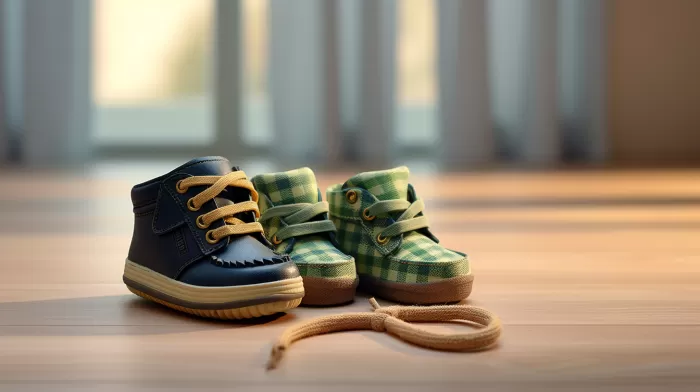If you’ve recently given birth or are planning on welcoming a new bundle of joy into your life soon, this may come as somewhat of a surprise: you might need new shoes! Yes, you read that right – having a baby can permanently change your feet, leading to an increase in foot size and a need for bigger shoes. This has been confirmed through research, which has found that about 60 to 70 percent of women experience changes in their feet after giving birth.
It’s something many women instinctively know – dramatic changes are happening to their bodies throughout pregnancy. And yet, the medical community has only recently studied these changes. In this article, we’ll delve deeper into the reasons behind these changes, as well as the implications for women’s foot health and overall well-being.
The Science Behind Foot Changes
Researchers at the University of Iowa conducted a study to investigate the foot changes that occur during pregnancy. They followed 49 pregnant women, collecting static and dynamic arch measurements during their first trimester and then again about five months after childbirth. Their findings showed that for the majority of these women, their feet became both longer and wider after giving birth.
Interestingly, the study found that these foot changes were most noticeable during the first pregnancy, and subsequent pregnancies caused less dramatic changes. This may help explain why women who have had multiple pregnancies report less significant variations in shoe size between their pre- and post-pregnancy feet.
Why Do Foot Changes Occur During Pregnancy?
Pregnancy affects the feet in a few different ways:
- Weight gain: During pregnancy, women tend to gain weight, which puts extra pressure on the feet. This extra weight can cause the arch of the foot to flatten, resulting in a longer and wider foot.
-
Relaxin: A hormone called relaxin helps your body to prepare for childbirth by loosening ligaments. However, relaxin doesn’t just target the ligaments in the pelvis; it also affects those in your feet. This can ultimately lead to a flatter arch in your foot and result in a bigger shoe size.
-
Swelling: Fluid retention is common during pregnancy, which can cause feet to swell. Although this swelling tends to subside after pregnancy, it can sometimes leave your feet permanently enlarged.
The Long-Term Impact of Pregnancy on Foot Health
The study conducted by the University of Iowa also looked into the long-term implications of these foot changes. Women who have had children are more likely to experience musculoskeletal disorders than men and women without children. The researchers hypothesized that these foot changes might explain why women are more prone to experience issues such as arthritis and pain in their feet, knees, hips, and spines.
With this in mind, it’s essential for women to pay attention to their foot health, especially after pregnancy. Wearing ill-fitting shoes can exacerbate foot problems and increase the risk of developing musculoskeletal issues later on in life. It’s crucial for women to choose shoes that provide adequate support, cushioning, and the correct fit.
Tips for Proper Foot Care Post-Pregnancy
Here are some tips to help take care of your feet after giving birth:
- Get your feet measured: Don’t just assume that your feet have changed in size after pregnancy; get them professionally measured so you can find the right shoe size for you. Many shoe stores offer free measuring services.
-
Invest in supportive footwear: Look for shoes with good arch support, cushioning, and a roomy toe box. A well-fitted shoe can help alleviate foot pain and prevent the development of foot disorders.
-
Avoid high heels: While high heels may be a fashionable choice, they can cause stress on your feet and exacerbate issues that may have developed during pregnancy.
-
Exercise: Strengthening the muscles in your feet can help support your arch and prevent additional flattening or widening. Low-impact exercises, such as swimming or cycling, can also help relieve pressure on the feet and joints.
-
Seek professional help: If you notice any persistent pain or discomfort in your feet, it’s essential to speak with a healthcare professional or a podiatrist. They can provide guidance on how to best care for your feet and recommend any necessary treatments.
In conclusion, pregnancy can have a lasting impact on a woman’s feet, resulting in changes in shoe size and the need for new footwear. It’s crucial to pay attention to foot health after giving birth, as these changes may contribute to the development of musculoskeletal disorders later in life. By following the tips outlined above and seeking professional guidance when needed, women can take steps toward maintaining healthy, comfortable feet after pregnancy.



